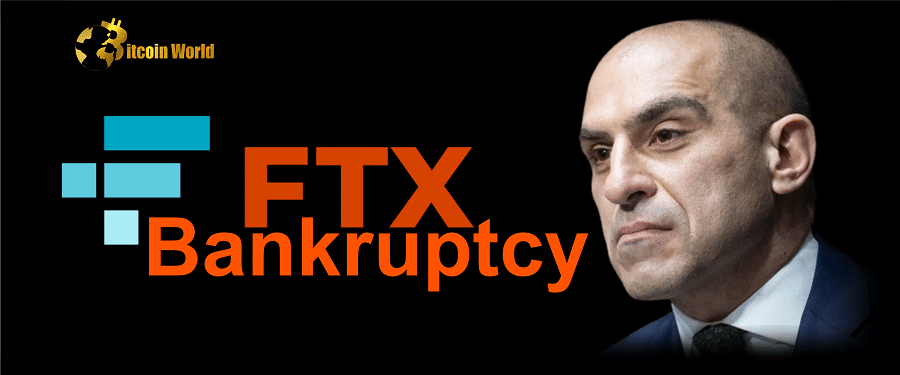The cryptocurrency world is still reeling from the dramatic collapse of FTX, one of the largest crypto exchanges. In the wake of this debacle, Rostin Behnam, Chairman of the Commodity Futures Trading Commission (CFTC), stepped into the spotlight to address the Senate Agriculture Committee. His message was clear and urgent: the CFTC needs more power to effectively regulate the burgeoning digital commodity market.
Why is the CFTC Asking for More Authority?
During the hearing, titled “Why Congress Should Act: Lessons Learned from the FTX Debacle,” Behnam didn’t mince words. He highlighted the CFTC’s current limitations in overseeing the spot digital commodity market. While the CFTC has jurisdiction over futures markets, its ability to directly control the broader crypto market is restricted. This means their power to combat fraud and manipulation in the everyday buying and selling of cryptocurrencies is, in his words, “limited.”
Despite these limitations, the CFTC hasn’t been idle. Since 2014, they’ve launched over 60 enforcement actions related to digital assets, racking up a staggering $820 million in penalties. In 2022 alone, about 20% of their 82 enforcement actions were crypto-related. Behnam emphasized that these actions are likely just scratching the surface, stating, “The CFTC fraud found is likely just the top of the iceberg.”
The DCCPA: A Potential Solution?
To address these regulatory gaps, Behnam strongly advocated for the “Digital Commodities Consumer Protection Act of 2022” (DCCPA). This proposed legislation, submitted in August, is seen by the CFTC as a crucial step towards establishing a robust regulatory framework for digital commodities. But what exactly is the DCCPA, and why is the CFTC so keen on it?
The DCCPA, developed in consultation with Agricultural Commission members and CFTC staff, aims to grant the CFTC “exclusive oversight” over “digital commodities.” This would mean:
- Broader Regulatory Reach: The CFTC would have direct authority to regulate the spot markets for digital commodities, not just futures.
- Registration Requirements: Brokers, dealers, custodians, and exchanges dealing with digital commodities would need to register with the CFTC.
- Enhanced Consumer Protection: The act seeks to implement stronger safeguards to protect consumers in the digital asset space.
What Lessons Can We Learn from LedgerX?
Behnam pointed to a stark example to illustrate the importance of CFTC regulation: LedgerX. This derivatives exchange, also under the FTX umbrella, managed to weather the FTX storm and remain solvent. Why? Because LedgerX is CFTC-registered and supervised as a Designated Contract Market (DCM), Swap Execution Facility (SEF), and derivatives clearing agency.
CFTC oversight mandates that entities like LedgerX must adhere to strict rules, including:
- Segregation of Client Funds: Customer assets must be kept separate from the company’s operational funds.
- Robust Security Measures: Implementing security protocols to protect client assets.
- Adequate Capital Reserves: Maintaining sufficient cash to cover operational expenses.
- Accurate Record Keeping: Maintaining meticulous and transparent records of all transactions.
Behnam contrasted LedgerX’s success with the failures at FTX, stating, “While FTX, which went bankrupt, illegally outflowed enormous amounts of client funds due to poor segregation and risk management, Ledger X’s customer assets, which are under CFTC regulation, are segregated and remain in a place where they should be safe.” This highlights the tangible benefits of strong regulatory oversight in protecting customer funds.
Did FTX Lobby for the DCCPA?
Interestingly, former FTX CEO Sam Bankman-Fried (SBF) was a vocal supporter of the DCCPA, even lobbying Congress for its passage. This has raised eyebrows, with some, like the Wall Street Journal, questioning FTX’s motives. The speculation is that FTX might have preferred CFTC regulation over the Securities and Exchange Commission (SEC), perceiving the CFTC as a more lenient regulator.
However, Behnam firmly refuted the notion that CFTC regulation is weaker than SEC oversight. He clarified that the DCCPA is not a power grab and would still allow the SEC to regulate digital assets that qualify as securities. The aim is to create a clear division of regulatory responsibilities, not to diminish the role of the SEC.
Key Takeaways and the Path Forward
Behnam emphasized that the DCCPA includes crucial provisions to prevent the kind of misconduct seen in the FTX collapse. These include:
- Prohibition of Commingling Funds: Banning the practice of mixing company funds with client funds.
- Audited Financial Disclosures: Requiring companies to undergo regular audits and provide transparent financial reports.
In conclusion, the FTX debacle has served as a stark wake-up call for the crypto industry and regulators alike. Chairman Behnam’s testimony underscores the urgent need for a clear and robust regulatory framework for digital assets. The DCCPA, in the CFTC’s view, offers a viable path forward. By granting the CFTC broader authority and implementing key safeguards, it aims to foster a safer and more trustworthy environment for the digital commodity market. As Congress considers these proposals, the future of crypto regulation in the US hangs in the balance.
Disclaimer: The information provided is not trading advice, Bitcoinworld.co.in holds no liability for any investments made based on the information provided on this page. We strongly recommend independent research and/or consultation with a qualified professional before making any investment decisions.


